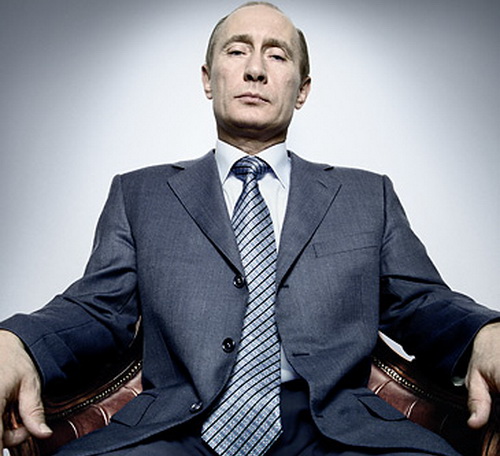Green Energy

Get the story at Ace of Spades.
Meanwhile, uh, yeah:
- Putin Accuses Turkey Of Backing Isis After It Downs Russian Warplane In Syria
Putin Accuses Turkey Of Backing ISIS After It Downs Russian Warplane In Syria ISTANBUL — Russian President Vladimir Putin accused Turkey on Tuesday of directly supporting the so-called Islamic State after Turkish forces shot down one of Russia’s...
- Escalation: Russia Fires Cruise Missiles Into Syria
From the Washington Post: MOSCOW — Russia’s Caspian Sea fleet on Wednesday launched a complex cruise missile strike against Syrian rebels from nearly 1,000 miles away, a potent exhibition of Moscow’s firepower as it backs a government offensive...
- Russia Orders Us Aircraft Out Of Syrian Skies. Us Claims It Will Not Comply
Russia orders US aircraft out of Syrian Skies. US claims it will not complyRussia has demanded that American warplanes exit Syrian airspace immediately, aUS official told Fox News on Wednesday.The official said that Russian diplomats sent an official...
-
MSNBC: OPEC ministers say world can handle $100 oil Other exporters indicate that cartel may not increase crude production By Shaimaa Fayed and Amena Bakr CAIRO — The global economy can withstand an oil price of $100 a barrel, Kuwait's oil minister...
- Drill: World Bank: Russia May Need Help If Oil Falls More
We need to get it drilled into our heads, the drill is, we need to drill more, and drill now, and if we do, then we will drill tyrants like Putin, Ahmadinejad, and King Abdullah into the ground. From the Associated Press: MOSCOW (AP) - Russia would come...
Green Energy
US Analysts Conclude, Russia Is Attacking US-Aligned Fighters, Not ISIS - Is Putin's Goal Control of OPEC?

Get the story at Ace of Spades.
Meanwhile, uh, yeah:
U.S. officials said Russia’s targeting of its allies on the ground was a direct challenge to Mr. Obama's Syria policy. Underlining the distrust, the Pentagon decided against sharing any information with Moscow about the areas where U.S. allies were located because it suspected Russia would use that information to target them more directly or provide the information to President Bashar al-Assad's regime.
"On day one, you can say it was a one-time mistake," a senior U.S. official said of Russia’s strike on one of the allied rebel group’s headquarters. "But on day three and day four, there's no question it's intentional. They know what they’re hitting."And as for OPEC:
Three facts motivate Putin.
First, two regions utterly dominate world oil markets. The Middle East and Russia together ship 60 percent of all oil traded (45 and 15 percent, respectively). Meanwhile, American firms are by law prohibited from engaging in this vital global marketplace; more on this shortly.
Second, oil matters. It provides 97 percent of the global fuel needs for all the engines that transport everything on land, sea and air. No viable substitutes exist at any price for liquid hydrocarbons at the scale society needs. And the world will consume more oil, not less, as far into the future as it matters for sensible policymaking.
Finally, price matters. Here the U.S. has upset the apple cart. Entrepreneurs using new technologies have unlocked a shocking increase in oil supply. U.S. shale fields have recorded the fastest increase in oil production in history. As a result, crude prices have collapsed from north of $100 to south of $50 a barrel.
The emerging consensus? Cheaper oil is the new normal.
How does Syria matter? While it's no oil-producing powerhouse by OPEC standards, even Syria's paltry production accounted for 25 percent of that nation's economy (although ISIS now controls most of Syria's oil fields). But Syria is ideal transit territory for pipelines to European markets for oil or gas originating in Iraq and Iran.
More important, given the build-up of Russian military men and materiel in Syria, is geography. Damascus is closer to Baghdad than Washington is to Boston, and not much further away from Riyadh than New York is from Chicago. Russia's military is now no longer deployed mainly on its Baltic borders but is in the world's premier petroleum neighborhood. Russia is not an OPEC member and has often claimed no desire to join. But they may have just joined by default.
- Putin Accuses Turkey Of Backing Isis After It Downs Russian Warplane In Syria
Putin Accuses Turkey Of Backing ISIS After It Downs Russian Warplane In Syria ISTANBUL — Russian President Vladimir Putin accused Turkey on Tuesday of directly supporting the so-called Islamic State after Turkish forces shot down one of Russia’s...
- Escalation: Russia Fires Cruise Missiles Into Syria
From the Washington Post: MOSCOW — Russia’s Caspian Sea fleet on Wednesday launched a complex cruise missile strike against Syrian rebels from nearly 1,000 miles away, a potent exhibition of Moscow’s firepower as it backs a government offensive...
- Russia Orders Us Aircraft Out Of Syrian Skies. Us Claims It Will Not Comply
Russia orders US aircraft out of Syrian Skies. US claims it will not complyRussia has demanded that American warplanes exit Syrian airspace immediately, aUS official told Fox News on Wednesday.The official said that Russian diplomats sent an official...
-
MSNBC: OPEC ministers say world can handle $100 oil Other exporters indicate that cartel may not increase crude production By Shaimaa Fayed and Amena Bakr CAIRO — The global economy can withstand an oil price of $100 a barrel, Kuwait's oil minister...
- Drill: World Bank: Russia May Need Help If Oil Falls More
We need to get it drilled into our heads, the drill is, we need to drill more, and drill now, and if we do, then we will drill tyrants like Putin, Ahmadinejad, and King Abdullah into the ground. From the Associated Press: MOSCOW (AP) - Russia would come...
